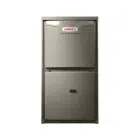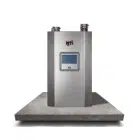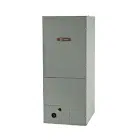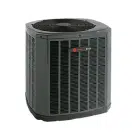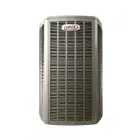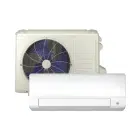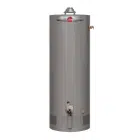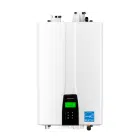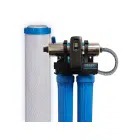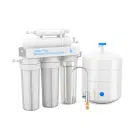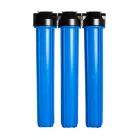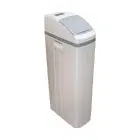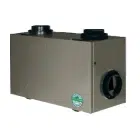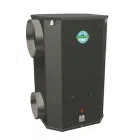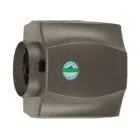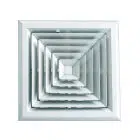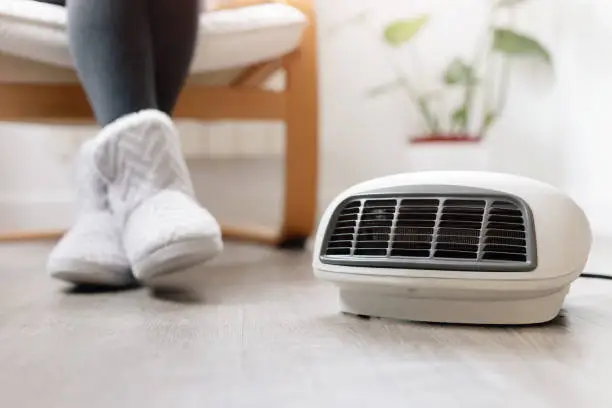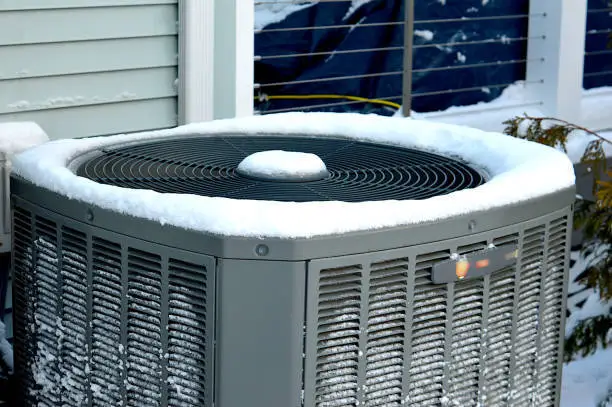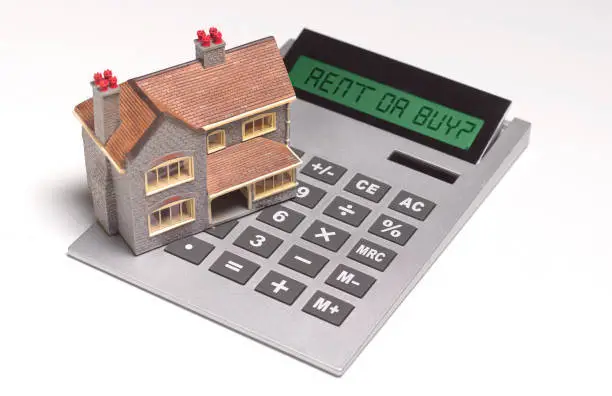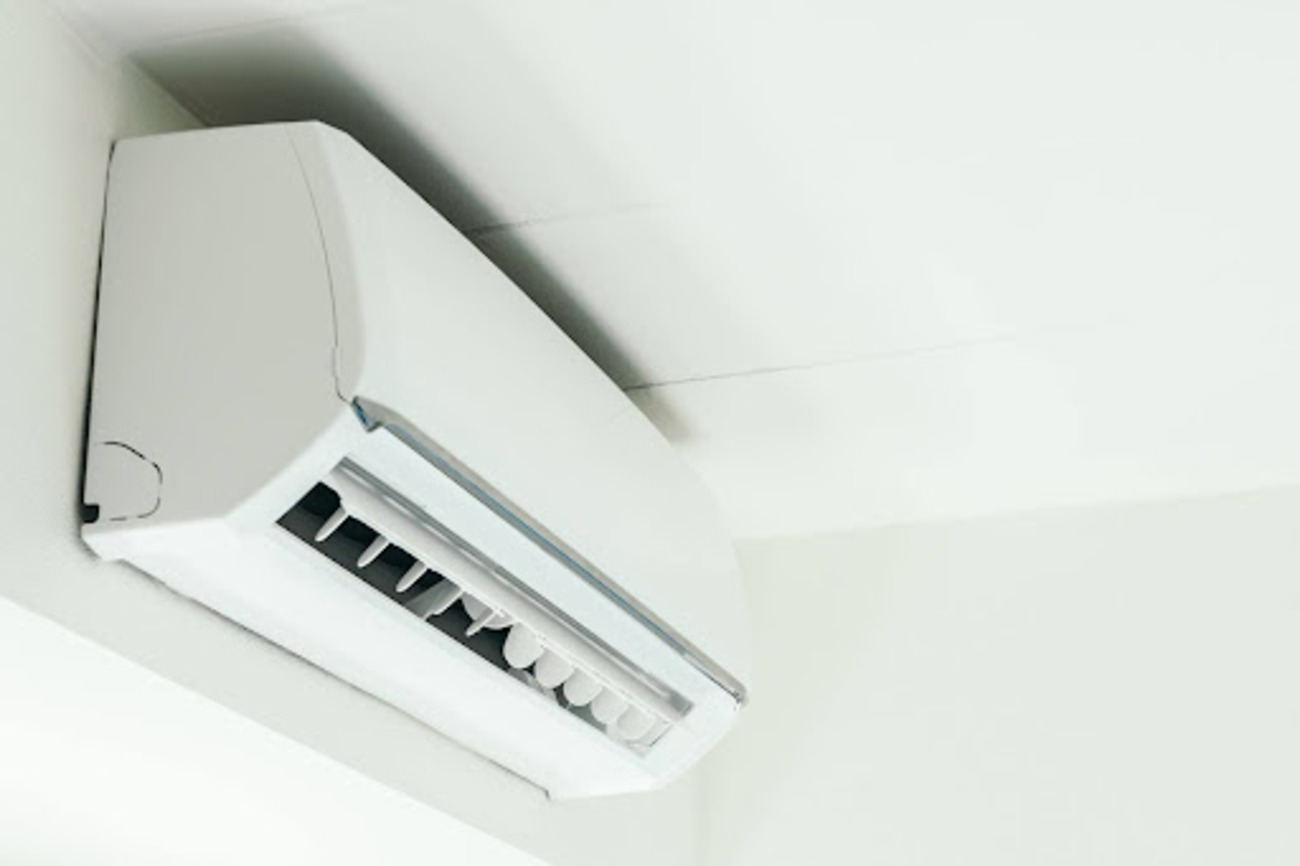
Table of Contents
- Functionality: How Do They Work?
- Heat Pump vs Air Conditioner: What System Is More Energy-Efficient?
- Climate Suitability: Adapting to Your Environment
- Initial Cost of a Heat Pump or Central AC: Navigating Upfront Investment
- Long-Term Expenses: Potential Savings
- Maintenance and Longevity: Comparing Durability
- Environmental Impact: Going Green
- Heat Pump vs Air Conditioner: So What Is Better?
- Conclusion
Can’t choose between a heat pump and an air conditioner? We understand the challenge of standing at the crossroads. Each of these HVAC systems has its advantages and disadvantages, and the ultimate choice depends on your specific circumstances. In this guide, we’ll walk you through the crucial differences, helping you make an informed decision that suits your unique needs.
Functionality: How Do They Work?
So, are you trying to understand what is the difference between heat pump and air conditioner? Let’s start with the basics and consider the fundamental functionality of each.
A heat pump in Canada is your year-round HVAC solution, offering dual functionality that goes beyond mere temperature regulation. During colder months, it acts as an efficient heating system by extracting warmth from the air or ground, ensuring a cozy indoor environment. Come summer, it seamlessly reverses the process, becoming a powerful air conditioner to keep your home cool. The versatility of a heat pump makes it a compelling choice for those seeking comprehensive climate control.
In contrast, an air conditioner is a specialized cooling system designed to tackle the heat. It excels at extracting heat from your indoor air during warmer seasons, leaving you with a comfortably cool living space. While it doesn’t offer the dual functionality of a heat pump, an air conditioner is a straightforward solution for those primarily focused on maintaining a refreshing ambiance during hot weather.
Heat Pump vs Air Conditioner: What System Is More Energy-Efficient?
When it comes to energy efficiency, heat pumps often take the lead, particularly in moderate climates. By harnessing the principles of heat transfer, these systems excel at providing both heating and cooling with reduced energy consumption. This can translate to significant long-term savings on your energy bills, making the initial investment in a heat pump a financially savvy choice.
While air conditioners are known for their effectiveness in cooling indoor spaces during warmer months, their energy efficiency may not match that of heat pumps. Air conditioners focus solely on cooling, and while modern models have improved efficiency, they may not be as economical in the long run as their dual-function counterparts.
To conclude, in the realm of energy efficiency, the heat pump often emerges as the frontrunner. It offers a versatile solution that caters to both heating and cooling needs with optimal energy utilization. However, the choice between the two ultimately depends on your local climate, usage patterns, and personal preferences.
Climate Suitability: Adapting to Your Environment
As you navigate the decision between a heat pump and an air conditioner, it’s also crucial to consider the specific climate of your region. Each system has its strengths, and understanding how they adapt to different environments is key.
Heat Pump: Addressing Cold Concerns
One common concern is the effectiveness of heat pumps in extremely cold climates. While traditional heat pumps may face challenges in frigid temperatures, advanced models are equipped with auxiliary heating systems, ensuring optimal performance even during chilly winters. If you reside in an area with predominantly cold seasons, the heat pump’s adaptability becomes a significant advantage.
Explore everything you need to know before buying a heat pump in our comprehensive guide via the link below.
Air Conditioner: Best Suited for the Heat
Air conditioners are designed to thrive in warm to hot climates, making them ideal for areas where cooling takes precedence overheating. In regions with prolonged hot seasons, an air conditioner can efficiently and consistently maintain a comfortable indoor temperature. However, in colder climates, the limitations of an air conditioner become apparent.
So, if you experience diverse temperature ranges throughout the year, the heat pump’s ability to handle both heating and cooling may make it the more adaptable choice. Conversely, if your climate leans toward extremes of heat, the air conditioner could be the simpler, more suitable option.
Initial Cost of a Heat Pump or Central AC: Navigating Upfront Investment

The initial cost of a heat pumpmay be higher than that of an air conditioner. However, this investment goes beyond mere cooling, offering a versatile solution for both heating and cooling needs. The upfront expenditure may be offset by long-term savings on energy bills, making the heat pump a strategic investment for those seeking year-round climate control.
Air conditioners, in contrast, often come with a more straightforward installation process and potentially lower upfront costs. If your primary focus is on cooling and you reside in a climate where heating demands are minimal, an air conditioner could be the more affordable option. However, it’s important to recognize that this affordability comes at the expense of the dual functionality provided by a heat pump.
Find out how much it costs to install an air conditioner in Canada in our previous article.
Long-Term Expenses: Potential Savings
The energy efficiency of heat pumps can translate into lower operating costs, especially in regions where both heating and cooling are essential throughout the year. By harnessing the principles of heat transfer, these systems optimize energy usage, potentially leading to significant savings on your monthly energy bills. As we told in a previous part, investing in a heat pump may incur a slightly higher upfront cost, but the potential for reduced ongoing expenses makes it a financially strategic choice.
Air conditioners excel in the realm of cooling during hot seasons, providing effective temperature control when you need it most. However, their operating costs are primarily associated with keeping indoor spaces cool, making them more suitable for regions with predominantly warm climates. While modern air conditioners have improved in energy efficiency, their focus on cooling may not offer the same year-round savings as a heat pump.
Maintenance and Longevity: Comparing Durability
Heat pumps, when properly maintained, have the potential for impressive longevity. Regular inspections, timely servicing, and attention to minor issues can contribute significantly to their overall durability. Additionally, heat pumps are engineered with durability in mind, boasting components designed to withstand the rigors of year-round operation. Investing in a comprehensive maintenance plan not only enhances efficiency but also extends the lifespan of your heat pump, ensuring reliable performance for years to come.
Air conditioners, while robust, benefit from a disciplined approach to seasonal maintenance. Regular cleaning of filters, checking refrigerant levels, and inspecting components can enhance the system’s efficiency and longevity. However, it’s important to note that air conditioners are primarily geared towards cooling, and their lifespan may be influenced by the intensity and duration of usage during peak cooling seasons. Adhering to a proactive maintenance schedule is key to maximizing the lifespan and preserving the efficiency of your air conditioning system.
Schedule professional heat pump or air conditioner maintenance in Canada via the link below.
Environmental Impact: Going Green

When it comes to the environmental footprint, heat pumps often take the lead with their lower carbon emissions compared to traditional heating systems. Their efficient use of energy contributes to reduced greenhouse gas emissions, making them a greener choice. On the other hand, while air conditioners are effective at cooling, the environmental impact is influenced by the refrigerants they use. Opting for air conditioners with eco-friendly refrigerants helps mitigate their environmental footprint. In the balance between heat pumps and air conditioners, eco-conscious consumers may lean towards the versatility and lower carbon emissions of heat pumps for a more sustainable HVAC solution.
Heat Pump vs Air Conditioner: So What Is Better?
The decision of what HVAC system to choose hinges on various factors: your local climate, the importance of year-round comfort, upfront costs, and long-term sustainability goals. If you seek a versatile system, prioritize long-term efficiency, and live in a region with diverse climate demands, a heat pump may be the ideal choice. On the other hand, if simplicity, lower upfront costs, and a focus on cooling are your primary considerations, an air conditioner may suit your needs.
We hope that the table below will help you to make an informed decision.
Factors to Consider | Heat Pump | Air Conditioner |
|---|---|---|
Functionality | Heating and cooling versatility | Cooling specialization |
Energy Efficiency | Higher efficiency, potential for energy savings | Effective cooling, may have higher energy consumption |
Climate Suitability | Adaptable to diverse climates, effective in cold regions | Ideal for warm to hot climates |
Initial Cost & Installation | Initial Cost & Installation | Higher upfront cost, dual functionality |
Operating Costs | Potential long-term savings, year-round efficiency | Focused on seasonal cooling costs |
Maintenance & Longevity | Robust with proper maintenance, impressive lifespan | Efficient with seasonal maintenance, lifespan influenced by usage patterns |
Environmental Impact | Lower carbon footprint, eco-friendly refrigerants | Impact influenced by refrigerants, potential for eco-friendly choices |
Local Incentives & Rebates | Often eligible for substantial incentives | May have incentives, but the comprehensive nature of heat pumps aligns well with many programs |
Conclusion
Ready to make the right choice for your home? Contact HVAC Service Solutions for personalized consultations tailored to your needs. Visit our website via the link below to take the first step toward optimal comfort and efficiency.
Frequent Asked Questions
What are the fundamental differences between a heat pump and an air conditioner?
Heat pumps are versatile HVAC systems, offering both heating and cooling functions. They work by transferring heat between the inside and outside of your home, effectively warming your home in winter by extracting heat from the air or ground, and cooling it in summer by reversing this process. This dual functionality makes them an all-in-one solution for year-round climate control. In contrast, air conditioners are designed specifically for cooling. They remove heat and humidity from indoor air, providing relief during hot weather but without any heating capability.
How do heat pumps and air conditioners compare in terms of energy efficiency?
Heat pumps are often lauded for their energy efficiency, particularly in moderate climates. By utilizing a single system for both heating and cooling, they reduce the need for separate systems, which can lead to energy savings. In heating mode, they can be three to four times more energy-efficient than traditional electric heaters. Air conditioners, while effective in cooling, tend to consume more energy compared to heat pumps. Modern air conditioners have improved in efficiency but still primarily focus on cooling, which might not be as cost-effective in regions with varied climate needs.
Which is more suitable for cold climates, a heat pump or an air conditioner?
In colder climates, the performance of heat pumps versus air conditioners becomes a critical consideration. Traditional heat pumps can struggle in extreme cold, but newer models are designed to operate effectively even in low temperatures, often incorporating auxiliary heating elements. They are an excellent option for cold climates as they provide both heating and cooling. Air conditioners, however, have no heating function and are thus not suitable for cold climates.
What are the initial costs and long-term expenses of heat pumps and air conditioners?
The initial cost of a heat pump is typically higher than that of an air conditioner. This investment reflects the heat pump’s dual functionality and advanced technology. However, the long-term savings potential due to reduced energy bills can make heat pumps a more economical choice over time. In comparison, air conditioners have a lower upfront cost but are limited to cooling, potentially leading to additional expenses for separate heating solutions.
How does the maintenance and longevity of heat pumps compare to air conditioners?
Regular maintenance is key to ensuring the longevity and efficiency of both heat pumps and air conditioners. Heat pumps require consistent upkeep due to their year-round use, including routine checks of the refrigerant levels, filters, and electrical components. Well-maintained heat pumps can last up to 15 years. Air conditioners also benefit from regular maintenance, such as cleaning or replacing filters and checking the cooling system, which can extend their life and improve efficiency.
Which is more environmentally friendly: a heat pump or an air conditioner?
Heat pumps have a smaller environmental footprint compared to traditional heating systems. They use less energy, which can lead to lower greenhouse gas emissions, especially when powered by renewable energy sources. Air conditioners, while effective in cooling, can have a larger environmental impact due to the use of refrigerants and higher energy consumption. Choosing models with eco-friendly refrigerants and higher energy efficiency ratings can mitigate this impact.
Can heat pumps effectively cool a home in hot climates?
In hot climates, heat pumps are equally efficient in cooling as traditional air conditioners. They use a refrigerant to absorb heat from the indoor air and release it outside, similar to how an air conditioner works. This means that in summer, a heat pump can provide the same level of comfort as an air conditioner. Moreover, with advancements in technology, heat pumps are becoming more effective in extreme temperatures, both hot and cold.
Are there any government incentives or rebates for installing heat pumps or air conditioners?
Government incentives and rebates often favor the installation of energy-efficient systems like heat pumps. These incentives can significantly reduce the initial investment cost, making them an attractive option for homeowners. Incentives may include tax credits, rebates, or reduced utility rates. Air conditioners may also qualify for incentives, especially those with high SEER (Seasonal Energy Efficiency Ratio) ratings, but the scope and amount of these incentives are generally more limited compared to heat pumps.
Check out our previous article to find out how to save up to $7800 on new energy-efficient furnace.
How does the climate impact the choice between a heat pump and an air conditioner?
The choice between a heat pump and an air conditioner largely depends on your local climate. Heat pumps are ideal in regions with both hot summers and cold winters, providing an efficient solution for year-round comfort. In areas with predominantly hot climates and minimal winter heating needs, an air conditioner may be more appropriate and cost-effective. It’s important to assess the typical weather patterns of your area to make the most suitable choice.
What should I consider when deciding between a heat pump and an air conditioner for my home?
Deciding between a heat pump and an air conditioner involves considering several factors. Evaluate your region’s climate, your home’s insulation and energy efficiency, and your long-term cost savings goals. Consider the upfront and operational costs, the system’s environmental impact, and potential rebates or incentives. Consulting with an HVAC Service Solutions can provide personalized recommendations based on your specific needs and circumstances.
Share
